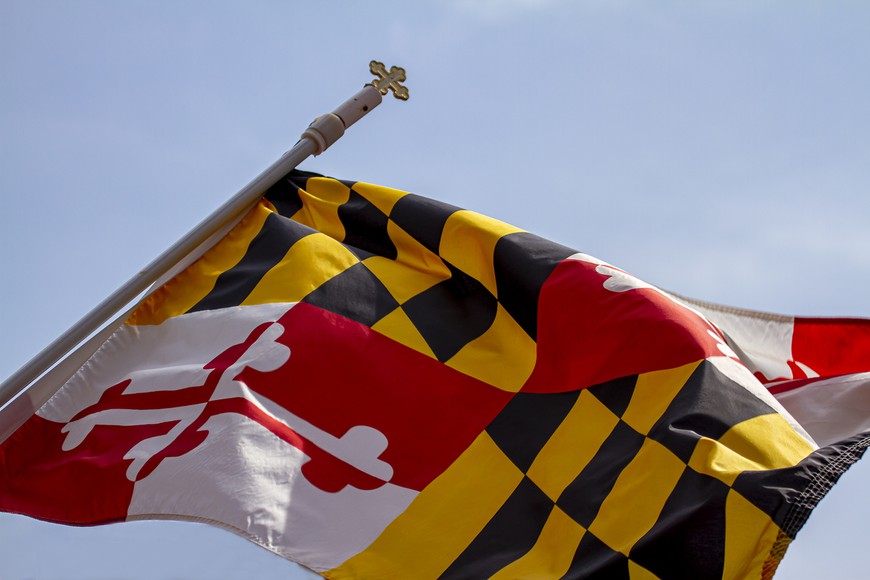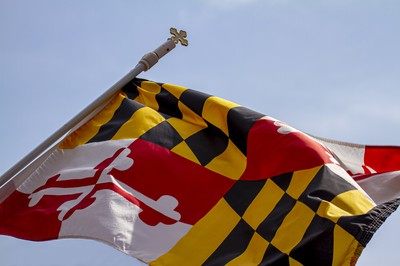

A state Senator who tried, but ultimately failed, to get Maryland online poker and casino gaming legalized in 2023 is working on a new bill for the 2024 session — and is also looking for support from lawmakers in the House of Delegates.
The bill explicitly allows for multi-state online poker, which means that it could join the multi-state igaming agreement (MSIGA) and allow operators to grow their US networks into Maryland.
However, before Maryland poker players get too excited, the 2024 draft bill currently proposes a tax rate of 46.5% on all igaming. That could prove to be a non-starter for online poker operators.
Chief of Staff Shares Details
Senator Ron Watson (D-Bowie) tried to get an online poker and casino bill across the finish line in 2023, but his first proposal, SB 267, failed to get a hearing in the Senate.
But that was last February. Now, Watson is back with a new proposal, which Watson’s chief of staff, Clate “CJ” Jackson, shared with Poker Industry PRO on Wednesday.
Many parts of the new bill resemble SB 267, but there are some big exceptions. Topping the list is that 46.5% tax rate — Watson had proposed just a 15% tax rate under SB 267. For this to be a viable market for online poker, this figure will need to come down; it is unlikely to attract any online poker operators at that rate.
Maryland’s six land-based casinos were initially afforded just one operator under SB 267 — now they can each have up to two operators. That means Maryland could potentially be home to as many as 12 online casinos and poker sites.
Watson previously proposed levying a $500,000 fee for a gaming license and that licenses should have five-year terms. His latest proposal calls for doubling the licensing fee to $1 million and cutting the term from five years to four.
Multi-State Poker Included
The latest proposal calls for authorizing multi-state poker.
Specifically, the proposal that Jackson shared with PRO shows Governor Wes Moore would be allowed to “enter into an agreement with other governments … that allows and provides for participation in multi-jurisdictional internet gaming by individuals who are physically located in jurisdictions over which the governments that are a party to the agreement exercise legal authority.”
That means that Maryland could join the Multi-State Internet Gaming Agreement (MSIGA), a multi-state gaming compact for poker and some casino gaming, in short order. The compact includes Delaware, Michigan, Nevada, New Jersey, and West Virginia. The same language was included in SB 267.
Moore was elected governor in 2022 and took office one year ago. It’s not known if he supports expanding gaming or not, but the Democrat would have the power to have the Old Line State join MSIGA — provided the idea is first recommended by the Maryland Lottery and Gaming Control Commission (MLGCC).
Many analysts consider membership in MSIGA as a necessary precursor for online poker to succeed in a new jurisdiction.
Maryland would be a mid-size member of MSIGA in terms of population. The state has 6.2 million residents, which means it’s larger than Delaware, Nevada, and West Virginia, but smaller than Michigan and New Jersey.
Many New Developments
News that a new online poker and casino bill is in the works is just the latest development in the quest for a regulated Maryland online poker market.
Last November, a report commissioned by state regulators estimated that online casino and poker would generate $533.4 million in gross gaming revenue in 2026. The Innovation Group projected the two verticals would gross $921.1 million by 2032.
That same month, the Baltimore Sun, the largest newspaper in the state, suggested that lawmakers legalize online poker, but not online casino gaming, arguing that a “slow and cautious” expansion would cause less harm to those with an addiction to gambling.
November also saw a Tacoma Park-based research firm conduct a survey of Marylanders to see where they stood on the issue of expanded gaming. Victoria Research found nearly 70% of respondents backed the idea.
Could Voters Back Gaming a Fourth Time?
Supporters should also take heart in knowing that Maryland voters have approved expanding gaming three times in the last 16 years.
Each time, voters were asked to weigh in during a presidential election year — and 2024 will be one of those. Voters OK’d five land-based casinos in 2008 and approved a sixth in 2012. Voters approved sports betting in 2020, but the market didn’t launch for two more years.
If voters back online poker and casino, the verticals likely wouldn’t launch until 2025 at the earliest.
Some potential partnerships between operators and land-based casinos appear obvious. BetMGM will likely partner with MGM National Harbor since the property is owned and operated by MGM Resorts International, which owns half of BetMGM. Similarly, Caesars owns both WSOP and Horseshoe Casino Baltimore, so a partnership there is expected.
PokerStars would likely partner with Live! Casino & Hotel Maryland, since the property already has a partnership with FanDuel for sports betting. FanDuel and PokerStars are both owned by Flutter Entertainment.
Likely MD Online Poker Operators and Partners
| Operator | Land-Based Casino Partner |
|---|---|
| BetMGM Poker US | MGM National Harbor |
| PokerStars US | Live! Casino & Hotel Maryland 1 |
| Run It Once Poker US | Bingo World |
| WSOP US | Horseshoe Casino Baltimore |
Note: (1) Other potential partners are Hollywood Casino Perryville or Ocean Downs Casino.

